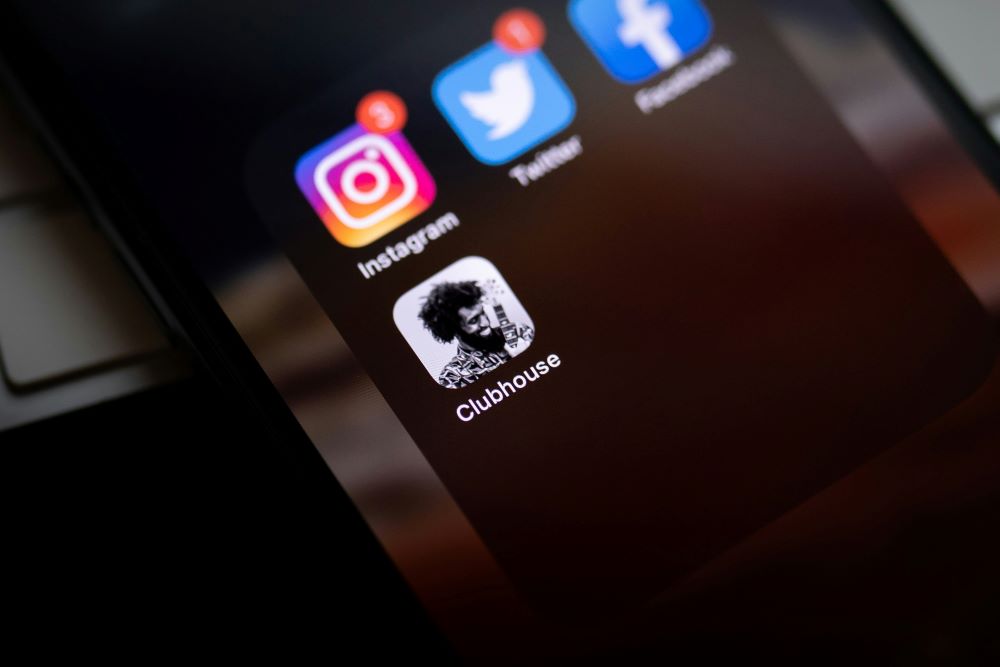“I seek to create a refuge for Catholic women who are on the margins and don’t feel like there’s a place for them.”
So explained Cora, a self-described “Dorothy Day Catholic,” author and religious content creator on Instagram, while reflecting on Dobbs v. Jackson Women’s Health Organization, emphasizing that the 2022 U.S. Supreme Court ruling marked a “pivotal” turning point in how she would wield her voice on her growing online platform.
Typically shying away from online conflict, Cora (not her real name) had approached Instagram as a space to connect with others and write about her faith. But the overturning of Roe v. Wade was “a breaking point,” after which Cora decided to respond publicly — standing in support of reproductive rights, marginalized people and fellow Catholics who identify as pro-choice. Despite knowing the risks of speaking about abortion in the online “public square,” especially as a Catholic, she expressed that “going against her conscience” and “being silent” would be “a higher cost.”
To her surprise, after publishing stories about Dobbs on her Instagram, Cora received 400 messages, nearly all of which were in “gracious support.” Examples included “Thank you; I feel so alone,” or “I work for a [Catholic] parish and I don’t feel like I can say this” or “I work at a Catholic school and I will lose my job [if I say something publicly] so thank you.” Cora reflected that receiving these messages was “one of the most moving experiences of [her] life.”
Taking seriously what these women create and how they engage on social media invites church leaders and lay people alike to consider the complexity and particularity of women’s experiences in the church.
Tweet this
Linh, one of Cora’s thousands of Instagram “followers,” describes Cora’s account as a “safe space,” emphasizing that it is an important site for grappling with what it means to be Catholic today. Through tears, Linh (not her real name) remarked that Cora’s comments on Dobbs “moved [her] deeply” and showed her that it is “OK to disagree with church teaching and still be Catholic.” Linh had privately messaged Cora, thanking her for “giving [her] permission to be sad and angry … and to live in that fully with [her Catholic] faith.”
Before discovering Cora’s account, Linh struggled with integrating her faith and political values, noting the difficulty of being vulnerable and discussing controversial topics in her in-person church community. She therefore “played down” her convictions while in that space, keeping her faith and politics “separate,” until she found Cora, who modeled wrestling with complex issues while remaining “authentic” to her lived faith.
Conversations such as those I had with Cora and Linh are integral to my research investigating the experiences of American Christian women online. The 75 women I interviewed expressed a wide spectrum of beliefs about abortion and Dobbs. (The term “women” includes anyone who self-identifies as a woman, including members of the transgender and non-binary communities.) Some women discussed the topic in relation to their Christian faith at length, others never broached the topic, while still others talked more broadly about adopting a consistent pro-life ethic.
Religious and spiritual women are experiencing incredibly varied interactions online — as exemplified on Instagram — and these interactions have consequential effects on their identities, faith practices and sense of community. Indeed, Christian women are conversing about numerous topics — including abortion, motherhood, infertility, marriage and dating, spiritual abuse, liturgical living, art and poetry. They are producing their own content: prayers and graphic illustrations that “go viral,” interactive weekly updates about their romantic relationships, spoken-word poetry and faith reflections, advice about healing from spiritual abuse, biblical exegesis and much more.
They are in community with others, actively choosing and curating who they follow and what they see on a day-to-day basis. Some women share personal vulnerabilities, like their experiences deconverting from evangelicalism, struggles trying to date Christian men, getting an autism diagnosis later in adulthood, experiencing a miscarriage or navigating being both gay and Christian. Other women are playful with what they share online — sometimes posting about their love of chickens and Taylor Swift alongside a prayer and faith-themed writing prompt. Many women actively participate in their own in-person religious communities as pastors or participants, while others look to the digital world for the safe practice of their spiritual life.
Taking seriously what these women create and how they engage on social media invites church leaders and lay people alike to consider the complexity and particularity of women’s experiences in the church and in this ever-evolving digital landscape. Cora and Lihn, along with the other women I interviewed, are utilizing social media in deliberate ways to create, connect, find meaning and question the status quo in a time when institutional and local church communities are not always satisfying their hopes and needs as religious practitioners, and as women. These women repeatedly discussed concepts like authenticity, community and authority — themes essential to understanding their experiences with religion online.
Authenticity
The women I interviewed noted a shared aversion towards inauthenticity (that which is deemed fake or overtly curated) and an appreciation for authenticity (that which is deemed real and genuine). In an online social media culture often described as “disingenuous” and “overly filtered,” my interviewees are drawn to media that captures the vulnerability and messiness of everyday life and lived faith. In-person religious leaders or their in-person religious communities do not address such issues: motherhood, dating, struggling with work-life balance, questioning God and so on. Following religious female content creators who seem to show up as their “true selves” online, “gives permission” for my interviewees to do the same. My research further examines the nuances of “perceived” authenticity and the idea of the “curated self” in much more detail in my forthcoming dissertation.
Community
My research demonstrates that the experiences of women who have navigated or continue to navigate community in both online and in-person religious spaces is complex and varied. For instance, women might feel more inclined toward in-person religious experiences and consider them “more legitimate” or “better” at fostering feelings of true community if they have had positive experiences with in-person religious spaces, are able-bodied or have certain beliefs about the importance of the Eucharist at Mass.
Women who have negative experiences with their in-person religious spaces, are homebound, have experienced religious abuse at an in-person community or feel isolated from their in-person community because of their divergent views, experience the online space — like a woman’s Instagram account — as a safe haven and a liberative, even embodied, community space. Numerous women referred to their own Instagram accounts or the accounts they follow as “safe spaces” and places where they “don’t feel alone.” Further, many expressed feelings of “connection” and “belonging” in these online spaces. In addition to these nuances, my project examines parasocial community relationships among women online, as well as the camaraderie Instagram fosters among content creators.
Authority
Heidi Campbell, an expert who studies digital religion, asserts that traditional pathways to attaining authority can be ignored or revoked within digital culture, allowing individuals within and outside the confines of an established religious group to “arise as alternative interpreters and influencers.”
With this in mind, many of my interviewees follow particular religious female content creators because they are seemingly different from traditional religious authorities. First, these content creators are not men. For many interviewees, that simple fact is “refreshing” — they now have people that look like them, struggle like them and live like them in gender-specific ways.
Second, these religious female content creators embrace humility, welcome questions and doubt, and lead by accompaniment and lived example. Alternatively, interviewees reflected on experiences in their in-person religious communities with traditional authorities. They noted that these authorities acted as “gatekeepers,” were “out of touch” and “claim[ed] to know everything,” which sometimes resulted in distrust and suspicion of these authorities. Further, the female content creators I spoke to expressed sensitivity to this issue, many actively deconstructing and reimagining authority and how it is exercised in both digital spaces and in-person communities.
My research demonstrates that millennial women on Instagram actively participate in the democratization of religious authority. The “lived experience” and “relatability” women demonstrate online generate authority that other women take seriously.
Looking forward
The digital landscape is vast and in constant flux; so, too, are the experiences of young American women who navigate this space. Although this project cannot provide a comprehensive understanding of this landscape, nor is it meant to generalize what religion online is like for all women today, my research elucidates how some women reimagine their religious traditions in ways that resonate with their lived experiences. I hope these women’s voices begin filling the gaps in current sociological research, which has at best underappreciated and, at worst ignored the lived experiences of religious women online.
As the Second Vatican Council encouraged, the lived experiences and concerns of the faithful should be valued as a source of theological insight. Whether or not the information garnered from this study is seen as such, I leave to the reader. In the end, I hope this research inspires further conversation and research on the intersection of women’s lived experiences, religion and social media.




